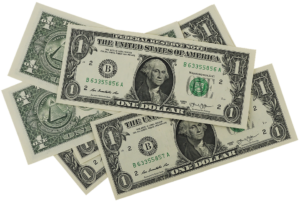You have probably heard of Fannie May. Officially called the Federal National Mortgage Association, Fannie May is a government-sponsored enterprise that was founded by Congress in 1938. The association was part of the New Deal formed during the Great Depression and was created to help stimulate the housing market. If you are planning to buy a home, then understanding how Fannie May loans work can be helpful to you. Read on as we discuss how these loans help moderate to low-income individuals buy a home.
What Does Fannie May Do?
There is a common misconception that Fannie May or the Federal National Mortgage Association provides mortgages to borrowers, but that isn’t the case. Instead of providing mortgages to borrowers, it purchases and guarantees mortgages through the secondary mortgage market.
The Federal Housing Finance Agency regulates Fannie May. Its goal is to offer stability, liquidity, and affordability to the market. It does this by purchasing mortgages from banks, bundling them, and selling them to investors. In doing so, it enables banks to finance a greater number of mortgages.
Fannie May also establishes the standards for mortgages that it is willing to offer a guarantee on and purchase. This makes them more attractive to investors. If a loan meets these standards, it can also be referred to as a conforming loan.
What Loan Programs Does Fannie May Offer?
Fannie May offers a number of loan programs that can help homebuyers. These include:
The HomeReady Program
This is a mortgage that can be used to purchase or refinance a home. It is meant for low-income buyers with a limited amount of cash at hand to make a down payment. Both first-time buyers and repeat buyers can qualify for this loan program. They can access a mortgage with a down payment as low as 3%. You can also use gifts and grants to make the down payment, and there is no minimum requirement for your personal contribution.
Buyers who want to qualify for this loan program need to have a credit score of 620 or above. If your credit score is over 680, then you can also get better terms on the mortgage. Besides this, buyers need to have private mortgage insurance until their equity in the home reaches a minimum of 20%.
Fannie May allows a debt-to-income percentage of up to 36%. You might also be required to have sufficient cash reserves to make mortgage payments for two to six months.
The HomeStyle Renovation Program
The HomeStyle Renovation Program is a type of mortgage that allows buyers to enjoy more flexibility by offering funds for a number of renovation projects. These include landscaping repairs, energy updates, and luxury upgrades. Borrowers can obtain a loan that is up to 75% of the purchase price with the renovation costs added. They can also obtain a loan equivalent to 75% of the “as-completed” appraised value, depending on which option is less costly.
Borrowers can also combine HomeRenovation with HomeStyle Energy or HomeReady if the planned upgrades are meant to offer energy efficiency or water efficiency.
The HomeStyle Energy Program
The HomeStyle Energy Program offers loans that allow borrowers to make upgrades that can reduce utility costs and improve the safety and comfort of their homes. They can borrow up to 15% of their home’s appraised value for improvements such as installing solar panels, energy-saving windows, upgraded water heaters, etc.
Borrowers can also use this loan to improve the resiliency of their properties against natural disasters. Some of the features they can install here include:
- Retaining walls
- Storm surge barriers
- Foundation retrofitting for protection against earthquakes
- Tree and brush removal in fire zones
- Radon remediation system installation
You can also combine this loan with HomeReady or HomeStyle Renovation to access more benefits.
Is Fannie May Offering Mortgage Relief Due to COVID-19?
As you may be aware, the government has offered mortgage relief programs under CARES (Coronavirus Aid, Relief, and Economic Security) to help borrowers who have been impacted by the COVID-19 pandemic.
If your mortgage is backed by Fannie May, then you might be able to get a forbearance, among other types of relief. This option is available for individuals who are experiencing difficulty in paying their mortgage due to income reduction, illness, or job loss from the Coronavirus. Some of the ways Fannie May can help you here include:
- You can get eviction protection.
- You can get forbearance for up to 12 months.
- You can access post-forbearance repayment plans. These include loan modification.
- You can get access to the Disaster Response Network. This offers HUD-approved counselors who can offer guidance and help you get your finances back on track.
How Is Fannie May Different From Freddie Mac?
If you know about Fannie May, the chances are, you have heard about Freddie Mac, as well. Freddie Mac refers to the Federal Home Loan Mortgage Corp. This is also a government-sponsored enterprise that functions similarly to Fannie May but with some key differences. These include:
- Freddie Mac buys mortgages from smaller commercial banks, whereas Fannie May buys from larger ones.
- Freddie Mac offers separate loan programs with different loan requirements, and you could meet the requirements for one but not for the other.
- Freddie Mac was created in 1970 with the purpose of expanding the secondary mortgage market in the United States. Fannie May was established during the Great Depression with the goal of increasing access to loan funds under reasonable terms and conditions.
Wrapping It Up

Fannie May is a government-sponsored enterprise that offers a variety of loan programs focused on increasing home affordability for moderate to low-income individuals. There are various loans available, and you can use them to buy a home with a down payment as low as 3%.
If you are interested in learning more about how Fannie May loans work and whether this is the right option for you, get in touch with Victor Jung. He can help you figure out which loan program offers the most advantage and if you should use it to buy a home. Click here to learn more.

